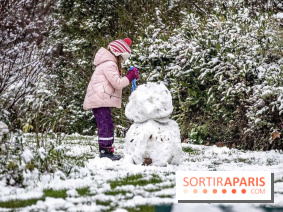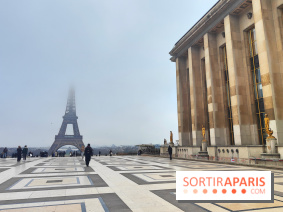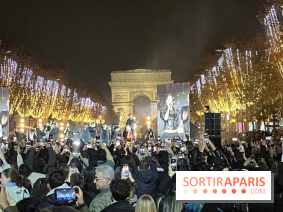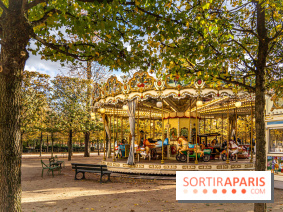October is Science Month in France! From October 3 to 13, 2025, libraries, museums, research centers, universities and cultural centers will be offering a wide range of free activities for the whole family. The Fête de la Science is back, and it's back with a vengeance in Paris and many other towns in theÎle-de-France region.
Fête de la Science 2025 in Paris and Ile-de-France: the program of free events
The Fête de la Science is back from October 3 to 13, 2025 for its 34th edition! The idea? A week dedicated to scientific culture, with numerous free events all over France. Experiments, shows, open houses, visits and a host of workshops, open to all and adapted to children, await you in the four corners of Paris and the Île-de-France region! [Read more]
The Fête de la Science is an annual event that promotes French scientists and their work, opens the doors of various disciplines to young people, and reconciles grown-ups with this often misunderstood and unloved field.
On this occasion, many educational and scientific sites welcome the general public free of charge, and offer a wide range of activities. Exhibitions, meetings with researchers, conferences and round tables, games, manual workshops, guided tours, shows... The program for this festival is packed, and the days are too short! To help you make your choice, and make the most of this major event, we've selected a few unusual activities for you to enjoy in Paris and the Ile-de-France region.
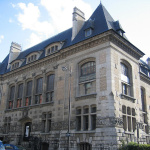


 Fête de la Science 2025 at the Institut de Paléontologie Humaine in Paris
Fête de la Science 2025 at the Institut de Paléontologie Humaine in Paris
The Institut de Paléontologie Humaine, located in the 13th arrondissement of Paris, is taking part in the new Fête de la Science. Join us this Saturday, October 4, 2025, to study animal bones in an archaeological context! [Read more]
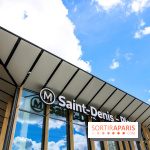


 Fête de la Science 2025 in the 93 region: the program for the city of Saint-Denis
Fête de la Science 2025 in the 93 region: the program for the city of Saint-Denis
Dive into the heart of the Fête de la science 2025 in Saint-Denis (Seine-Saint-Denis): from October 3 to 13, 2025, discover a free program combining workshops, events and scientific heritage, in a city with a rich historical and cultural heritage. [Read more]
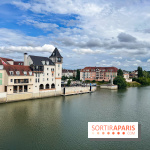


 Fête de la Science 2025: scientific events in Cergy (95)
Fête de la Science 2025: scientific events in Cergy (95)
The city of Cergy will be living to the rhythm of the Fête de la Science, a not-to-be-missed event for the curious and the passionate, from October 3 to 13, 2025. Young and old are invited to explore research, innovation and knowledge through events, encounters and unique experiences. [Read more]
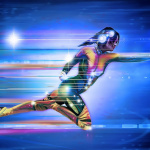


 Fête de la Science 2025: become a superhero at the Pileu mediatheque in Palaiseau
Fête de la Science 2025: become a superhero at the Pileu mediatheque in Palaiseau
The Fête de la Science 2025 returns on October 4 at the Pileu media library in Palaiseau. Workshops, activities and free discoveries around superheroes await young and old alike, on the theme of "Intelligence(s)". [Read more]
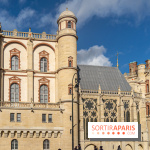


 Fête de la Science 2025: excavation workshops at the Musée d'archéologie nationale (78)
Fête de la Science 2025: excavation workshops at the Musée d'archéologie nationale (78)
The Fête de la Science is back at many venues in Paris and the Île-de-France region: at the Musée d'archéologie nationale in Saint-Germain-en-Laye (78), family activities await you from October 1 to 13, 2025. [Read more]
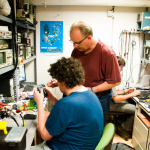


 Fête de la Science 2025: immersive experience at Electrolab - hackerspace in Nanterre (92)
Fête de la Science 2025: immersive experience at Electrolab - hackerspace in Nanterre (92)
The Fête de la Science 2025 returns from October 3 to 13 throughout France. In Nanterre, the Electrolab opens its doors from October 9 to 11 for a weekend of workshops, experiments and scientific encounters. [Read more]
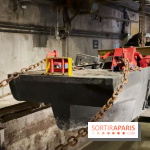


 Fête de la Science 2025: discover the secrets of Paris's sewers
Fête de la Science 2025: discover the secrets of Paris's sewers
From October 3 to 13, 2025, the Fête de la Science is in full swing in Paris and the Île-de-France region: to find out everything there is to know about the underside of Paris, visit the Sewer Museum! [Read more]
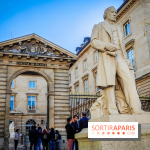


 Fête de la Science 2025: exclusive tour of laboratories and workshops at the Collège de France
Fête de la Science 2025: exclusive tour of laboratories and workshops at the Collège de France
The Fête de la Science runs from October 3 to 13, 2025! Everywhere in France, numerous free events for all ages will be promoting scientific culture, including the Collège de France, whose doors will be open to all on October 11. [Read more]
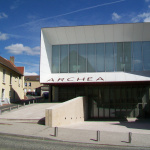


 Fête de la Science 2025: medieval apero-conference at Archéa, musée d'Archéologie en Pays de France
Fête de la Science 2025: medieval apero-conference at Archéa, musée d'Archéologie en Pays de France
In October, the Fête de la Science is celebrated in Paris and throughout the Île-de-France region, with a host of exceptional events on the program. At Archéa, the Musée d'Archéologie en Pays de France, there's a conference-apéro on bread on October 3, 2025. [Read more]
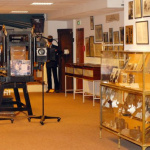


 Fête de la Science 2025: poisoners and miscellaneous events at the Musée de la Préfecture de Police
Fête de la Science 2025: poisoners and miscellaneous events at the Musée de la Préfecture de Police
How about a trip to the scientific police for the Fête de la Science 2025? That's what the Musée de la Préfecture de Police is offering from October 4 to 18! [Read more]
Here's something to reconcile us with all science! Where do you start?
Dates and Opening Time
From October 3, 2025 to October 13, 2025
Prices
Free
Official website
www.fetedelascience.fr
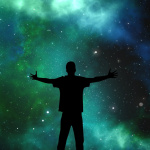


 Fête de la Science 2025 in Paris and Ile-de-France: the program of free events
Fête de la Science 2025 in Paris and Ile-de-France: the program of free events